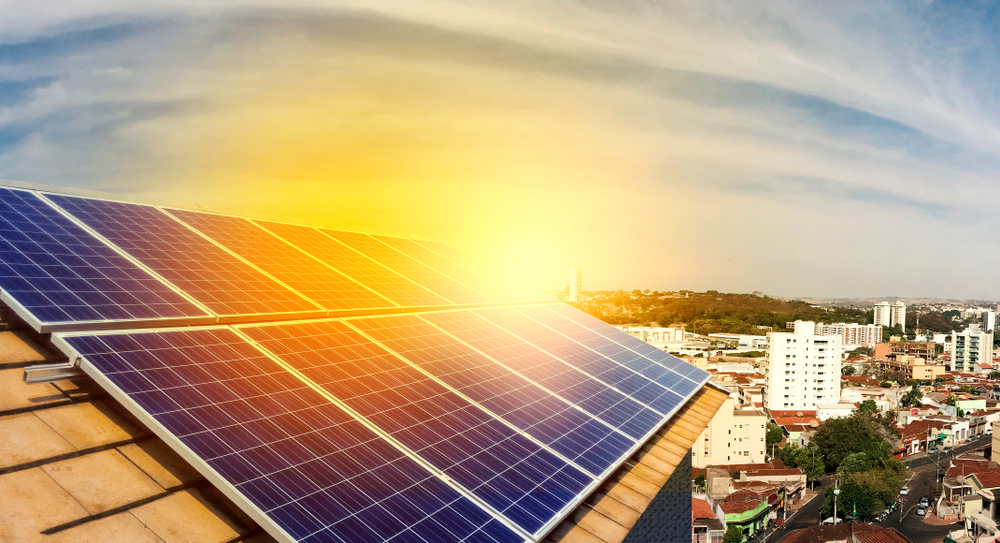With load shedding showing no sign of abating, solar installations are increasing in popularity. We investigate how to make the most of a solar investment.
29 February 2024 · Fiona Zerbst

Getting off the grid is an idea that appeals to most South Africans, but in reality, few can afford it. It costs a small fortune to install solar panels, a battery, and an inverter of even modest capacity.
However, there are ways to maximise the benefits of a solar power investment. We ask experts for the lowdown on choosing the right provider and system, tips for getting the most out of the technology, and ways to make it work for you financially.
Tip: Considering a solar solution? A personal loan could provide the cash injection you need.
At the outset, make sure you choose the right provider, urges David Neale, CEO of Metrowatt, a company that provides sustainable energy solutions.
“Your choice can make or break your savings journey,” Neale says. “Look for a provider that monitors your system after installation and delivers optimisation services tailored to your usage patterns. They can even install Wi-Fi timers to control your loads intelligently,” he advises.
The best option is a hybrid inverter with battery backup, Neale says.
“With such a system, your home can draw power from solar panels while staying connected to the grid,” he explains.
“Essential appliances such as your geyser, oven, air conditioners, and pool pump can run on solar energy. During load shedding, your inverter will seamlessly switch to solar power or battery backup, ensuring you’re never left without power.”
Panels should ideally face north to capture maximum sunlight.
“Consider an east- and west-facing setup if your roof layout doesn’t permit this. Avoid shade so your panels operate at peak efficiency,” says Neale.
Timing your appliance use can also help to maximise savings, Neale points out.
“Solar panels generate power when there’s demand during daylight hours. To maximise your savings, schedule high-energy-consuming appliances, such as geysers and pool pumps, to run between 10am and 3pm when solar production is at its peak,” he says.
“Using Wi-Fi timers can help manage this effectively, ensuring consistent consumption throughout the day.”
Teresa Kok, marketing director at the One Energy Group, a renewable energy franchise network, recommends that you first determine the best system design for your needs.
Then, consider how much it can save you over its lifetime, and the expected utility costs for the same period.
She provides the example of a household with an electricity bill of R2,450 a month (using around 700 kilowatt hours (kWh) a month; or 23kWh a day) at a tariff of R3.50 per kWh:
System: A 5kW inverter, 10kWh lithium-ion batteries, and 4.3kW solar panel array.
Price: R148,000 (fully installed with all materials and certificate of compliance). This size system will generate between 20kWh and 22kWh a day, or 90%-plus of the daily electricity needs in this example.
If you buy upfront: Based on 2023’s 18.65% electricity tariff increase, the upcoming 12.74% in April 2024, and a very conservative 5% annually into the future, your breakeven point is just over five-and-a-half years, based on the electricity you will save.
“Based on our example, your cumulative savings on electricity costs will be R350,000 after 10 years, and R940,000 after 20 years. This is a savings multiple of 6.3 on your original investment of R148,000,” she says.
If you buy on a finance option: Based on the prime interest rate, with a finance term of 60 months and no annual escalation, your monthly repayment cost will be around R3,580. Figures may vary based on your credit rating and the rates applied.
“In the first year, you’ll save around R2,200 a month on your electricity bill, which then escalates, as does the cost per kilowatt hour of grid electricity,” says Kok, adding that this saving will offset a significant portion of your monthly loan repayment.
“Your system will be fully paid off in five years (60 months); and for the rest of your system’s lifespan, you’ll be generating your electricity for free, with less than a 10% reliance on grid electricity,” she notes.
At the time of writing, it appeared unlikely that SARS would extend its tax rebate of 25% on the cost of new and unused solar photovoltaic panels announced in 2023, but the City of Cape Town has launched a new scheme that allows households to sell their excess solar power to the city.
Cape Town residents who register for the Cash for Power programme as service providers will be able to contract with the city for three years.
Tip: Have rising interest rates put the squeeze on you? Free up cash with debt consolidation.
Free tool

info@justmoney.co.za
4th Floor, Mutual Park, Jan Smuts Drive,
Pinelands, Cape Town, 7405
© Copyright 2009 - 2025 · Powered by NCRCB29
Terms & Conditions
·
Privacy Policy
·
PAIA Manual
View your total debt balance and accounts, get a free debt assessment, apply for a personal loan, and receive unlimited access to a coach – all for FREE with JustMoney.